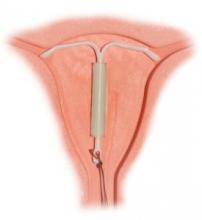The voters in Mississippi soundly rejected an attempt to change the state’s constitution to grant legal rights to embryos, starting at the time of fertilization. After intense campaigning by advocates on both sides of the abortion debate, about 58% of voters came out against the ballot measure.
The defeat of the so-called “personhood” amendment may have had less to do with traditional abortion politics, and more to do with its potential impact on the availability of birth control and fertility treatments. Dr. Douglas Laube, the board chair for Physicians for Reproductive Choice and Health, who opposed the measure, said that because the personhood amendment called for establishing rights at the time of fertilization, it would likely have meant that birth control options that prevent implantation would have been disallowed. That includes emergency contraception and intrauterine devices (IUDs), he said.
In-vitro fertilization also could have been impacted. Supporters of the personhood amendment said the the availability of IVF wouldn’t have been affected, but they acknowledged that the amendment would have barred the destruction of embryos by fertility clinics since it defined a person as “every human being from the moment of fertilization, cloning, or functional equivalent thereof.”
Jennifer Mason, a spokeswoman for Personhood USA, which is promoting similar constitutional amendments around the country, said the change could end up being better for everyone. Instead of destroying excess embryos, fertility clinics could freeze them for future implantations or the embryos could be adopted by infertile couples. But the American Society for Reproductive Medicine and the Society for Assisted Reproductive Technology didn’t agree. In advance of the vote, the groups wrote to the Mississippi Secretary of State citing the uncertainty that any particular embryo will develop to become a person and calling it “unreasonable and imbalanced to give constitutional rights to fertilized eggs or embryos.”
The personhood debate is far from over. Personhood USA boasts that it is active in all 50 states and that the group plans to keep pursuing state constitutional amendments to outlaw abortion.
— Mary Ellen Schneider


